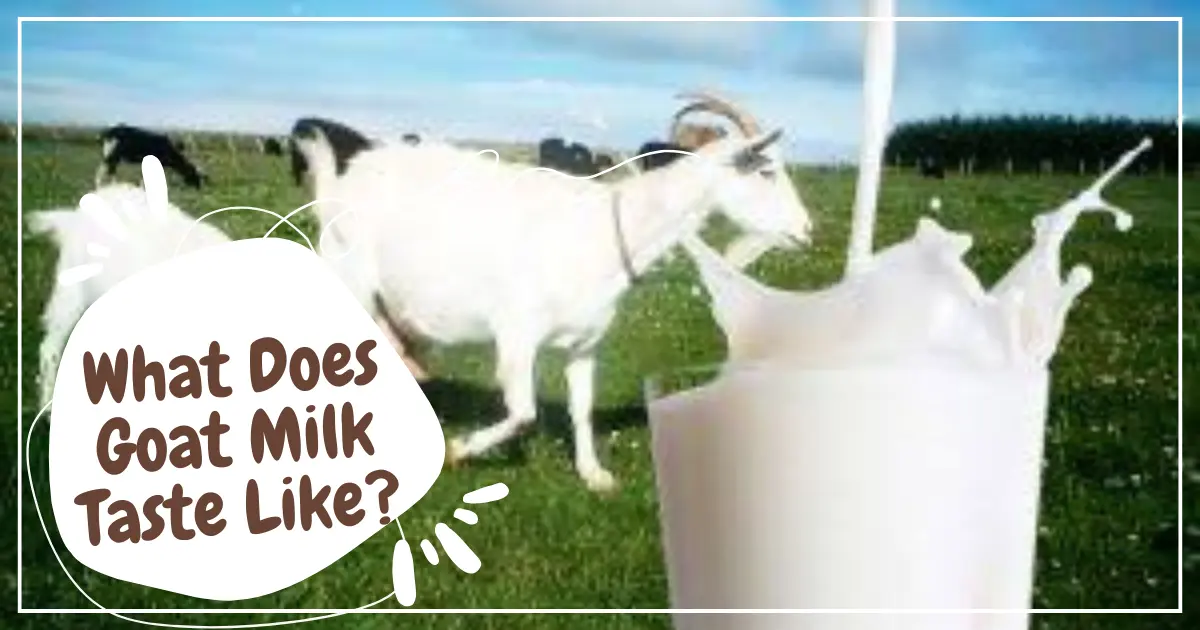Goat milk has been a dietary staple in many cultures for centuries, but it often sparks curiosity and debate about its flavor. This article dives deep into the taste, texture, and aroma of goat milk, addressing common concerns and comparing it to other milk types. We’ll also explore why some people find goat milk pungent or “weird” and whether it’s an acquired taste.
What Does Goat Milk Taste Like?
The taste of goat milk can be described as mildly sweet and creamy, with a slightly tangy undertone. Compared to cow milk, it has a more pronounced flavor, often described as “earthy” or “grassy,” depending on the goat’s diet and the milk’s processing.
| Milk Type | Taste Profile | Key Notes |
|---|---|---|
| Goat Milk | Mildly sweet, tangy, creamy | Earthy or grassy flavors |
| Cow Milk | Mild, neutral, sweet | Subtle creaminess |
| Sheep Milk | Rich, buttery, slightly nutty | Sweet with a strong aroma |
Why Is Goat Milk So Pungent?
Goat milk’s pungency is influenced by its unique fat composition. The presence of medium-chain fatty acids, such as caproic, caprylic, and capric acid, contributes to its strong aroma and flavor. Other factors include:
- Goat Diet: Goats graze on a variety of plants, which can affect the milk’s flavor.
- Processing: Raw goat milk often has a more pronounced flavor than pasteurized milk.
- Storage Conditions: Improper storage can intensify the pungency of goat milk.
Why Does Goat Milk Taste So Weird?
For some, goat milk tastes “weird” because its flavor is unfamiliar compared to cow milk. Factors influencing this perception include:
- Dietary Habits: People accustomed to cow milk may find goat milk’s tanginess unusual.
- Freshness: Goat milk that’s not fresh can develop a sour taste.
- Processing Variability: Differences in pasteurization and handling techniques can affect the taste.
Is Goat Milk an Acquired Taste?
Yes, goat milk can be an acquired taste for individuals new to its flavor profile. However, with regular consumption, many people grow to appreciate its unique qualities, such as:
- Rich Creaminess: Ideal for use in cooking and baking.
- Digestibility: Easier on the stomach for those sensitive to cow milk.
Which Tastes Better: Goat or Sheep Milk?
Taste preferences between goat and sheep milk are subjective. However, here’s a comparative analysis:
| Aspect | Goat Milk | Sheep Milk |
|---|---|---|
| Flavor | Mildly tangy and creamy | Rich, buttery, nutty |
| Cream Content | Moderate | High |
| Best Use | Drinking, cheese making | Yogurt, cheese, desserts |
| Digestibility | Easier for lactose-intolerant | Easier but richer in fats |
Benefits of Goat Milk Over Other Milks:
- High Digestibility: Goat milk has smaller fat globules and lacks agglutinin, making it easier to digest.
- Nutrient-Rich: Contains more calcium, potassium, and magnesium compared to cow milk.
- Allergy-Friendly: Lower in casein A1 protein, which is often linked to dairy allergies.
What are Some Health Benefits of Goat Milk?
Goat Milk is extremely beneficial for our health. Here is Nutritional Values of goat milk:
Nutritional Value of Goat Milk:
| Nutrient | Goat Milk (per 1 cup) | Cow Milk (per 1 cup) |
|---|---|---|
| Calories | 170 | 150 |
| Protein (g) | 9 | 8 |
| Calcium (mg) | 330 | 300 |
| Vitamin A (IU) | 483 | 395 |
| Medium-Chain Fatty Acids | High | Low |
Goat milk is particularly beneficial for people with lactose sensitivity or those seeking a nutrient-dense alternative to cow milk.
Goat Milk in Diet and Recipes:
Goat milk’s creamy texture makes it versatile in the kitchen. Popular uses include:
- Cheese: Goat cheese is prized for its tangy, earthy flavor.
- Yogurt: Creamy and nutrient-rich.
- Baking: Adds richness to cakes, muffins, and pancakes.
Conclusion
Goat milk offers a unique taste experience, combining creamy sweetness with a subtle tang. While some may find its flavor pungent or unusual at first, it can be an acquired taste that grows on you. Its nutritional benefits, including high digestibility and allergy-friendliness, make it a fantastic alternative to cow milk. When compared to sheep milk, goat milk is lighter and less creamy but equally versatile in culinary applications.
By understanding the factors influencing goat milk’s taste, including diet, processing, and freshness, you can enjoy its unique profile and incorporate it into your daily life with confidence. Whether you prefer goat milk for its health benefits or as a culinary delight, it stands out as a flavorful and nutritious option worth trying.
FAQs
Does goat milk taste better warm or cold?
Many find goat milk tastes better cold, as chilling reduces its tangy notes and accentuates its creaminess.
Why does fresh goat milk taste different?
Fresh goat milk can have a grassier flavor due to the goats’ diet. Proper storage and cooling immediately after milking help maintain its best taste.
Is goat milk suitable for infants?
Goat milk can be used as an alternative to cow milk for toddlers, but it should be fortified with essential nutrients like folic acid. Consult a pediatrician first.
How can you reduce the pungent taste of goat milk?
Pasteurization, rapid cooling, and proper storage can help reduce the strong taste of goat milk.
Which is better for cheese: goat milk or sheep milk?
Sheep milk is better for creamy, rich cheeses like feta and ricotta, while goat milk produces tangier varieties like chèvre.

